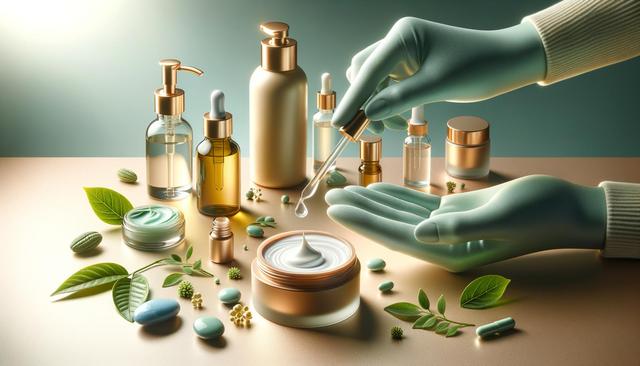Understanding the Causes of Acne
Acne is one of the most common skin concerns, affecting people of all ages. While it often begins during adolescence, many adults continue to experience breakouts well into their 30s and beyond. The root causes of acne vary but generally include excess oil production, clogged pores, bacteria, and inflammation. Hormonal fluctuations, particularly during puberty or menstrual cycles, are also major triggers, making Hormonal Acne Treatment a crucial topic for those affected. Understanding the underlying cause is the first step in learning how to get rid of acne effectively and sustainably.
External factors also play a role in acne formation. These include environmental pollutants, diet, and the use of comedogenic skincare products. Adopting a suitable Acne Skincare Routine can help control these external contributors. When choosing products, look for non-comedogenic labels and ingredients known to support clearer skin, such as salicylic acid, benzoyl peroxide, or niacinamide. These components can be part of both over-the-counter options and Prescription Acne Medications, depending on the severity of the condition.
Daily Skincare Habits That Make a Difference
Maintaining a consistent Acne Skincare Routine is essential for managing breakouts and preventing new ones. A basic routine includes cleansing, treating, moisturizing, and protecting the skin. Each step plays a specific role:
- Cleansing: Use a gentle, non-stripping cleanser twice daily to remove dirt and oil.
- Treatment: Apply targeted treatments such as serums or creams containing acne-fighting ingredients.
- Moisturizing: Even oily skin needs hydration. Use a lightweight, non-comedogenic moisturizer.
- Sun Protection: Apply sunscreen daily to prevent post-acne marks from darkening.
Consistency is key. Skipping steps or changing products frequently can irritate the skin and worsen acne. Establishing a routine tailored to your skin type and sticking with it will yield better long-term results. When developing your routine, consider incorporating Natural Acne Remedies like tea tree oil or witch hazel, especially if you prefer more holistic approaches. These ingredients have anti-inflammatory and antibacterial properties that may help reduce minor breakouts.
Exploring Home Remedies and Natural Treatments
Many individuals turn to Home Remedies For Acne as a first step in managing their skin. While these approaches may not be suitable for severe cases, they can be helpful for mild breakouts or as complementary treatments. Some popular Natural Acne Remedies include:
- Aloe Vera: Known for its soothing and anti-inflammatory properties.
- Honey and Cinnamon Masks: Both ingredients have antibacterial benefits.
- Green Tea: Applying cooled green tea topically can reduce inflammation.
- Apple Cider Vinegar: Often used as a toner, though it should be diluted to avoid irritation.
While natural treatments can be effective for some, it’s important to patch-test any new remedy and watch for signs of irritation. Not all skin types respond the same way, and what works for one person may not work for another. If no improvement is seen after a few weeks, it may be time to explore more structured options like the Best Acne Treatments available through dermatologists or pharmacies.
When to Consider Medical Intervention
For moderate to severe acne, or if over-the-counter options and home remedies fail to provide relief, it may be time to consult a dermatologist. Prescription Acne Medications can be highly effective in targeting the root causes of acne. These may include:
- Topical Retinoids: Help unclog pores and promote cell turnover.
- Antibiotics: Reduce inflammation and bacterial growth.
- Oral Contraceptives: Often used as Hormonal Acne Treatment in women.
- Isotretinoin: A powerful option for severe, cystic acne that has not responded to other treatments.
Medical treatments are often part of the Best Acne Treatments plan for individuals with persistent or painful breakouts. Dermatologists can tailor therapies to individual needs, ensuring safety and effectiveness. In some cases, combining different approaches—such as a Prescription Acne Medication with a consistent Acne Skincare Routine—can provide the best outcome.
Creating a Long-Term Strategy for Clear Skin
Acne management is not just about reacting to breakouts; it’s about prevention and maintenance. A long-term strategy should integrate healthy lifestyle habits along with skincare and treatments. Here are a few tips to support clearer skin over time:
- Maintain a balanced diet rich in whole foods and low in high-glycemic items.
- Stay hydrated to support skin health from within.
- Manage stress, which can trigger hormonal changes affecting the skin.
- Regularly clean makeup tools and avoid sharing personal skincare items.
It’s also helpful to keep a skincare journal to track which products and methods yield the best results. This allows for adjustments over time and helps eliminate potential triggers. Whether you’re relying on Natural Acne Remedies, following an Acne Skincare Routine, or exploring Prescription Acne Medications, consistency and patience are essential. Knowing how to get rid of acne involves understanding your skin’s unique needs and responding with informed choices.




Leave a Reply